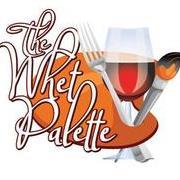-
Welcome to the eG Forums, a service of the eGullet Society for Culinary Arts & Letters. The Society is a 501(c)3 not-for-profit organization dedicated to the advancement of the culinary arts. These advertising-free forums are provided free of charge through donations from Society members. Anyone may read the forums, but to post you must create a free account.
The State of French Dining
-
Similar Content
-
- 46 replies
- 14,403 views
-
- 1 reply
- 897 views
-
- 196 replies
- 51,311 views
-
- 13 replies
- 907 views
-
- 843 replies
- 174,861 views
-
-
Recently Browsing 0 members
- No registered users viewing this page.





Recommended Posts